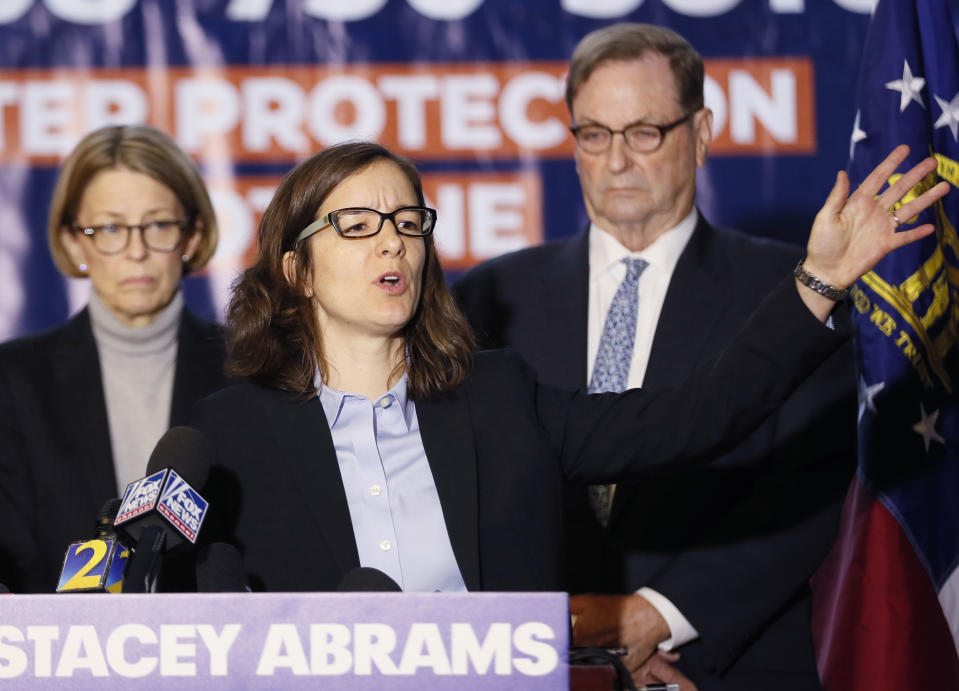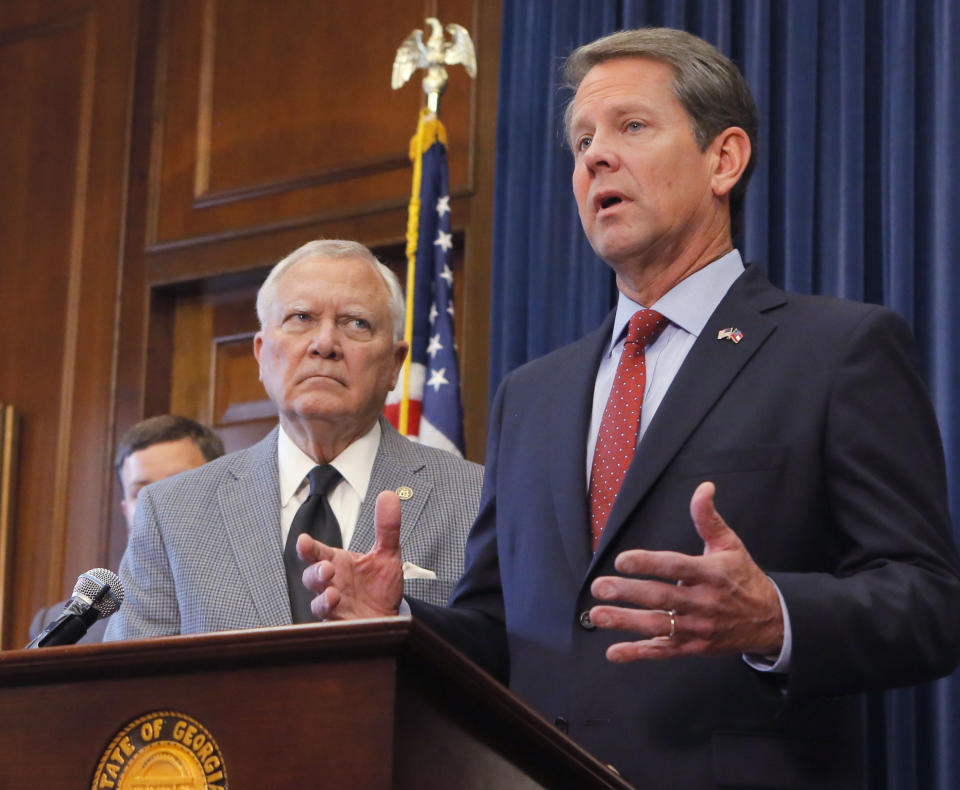Provisional ballots key focus in Georgia governor's race
ATLANTA (AP) — With Democrat Stacey Abrams insisting there are enough votes to keep her in Georgia's fiercely contested governor's race, a key focus will be an estimated 21,300 provisional ballots and whether those will help her make enough of a dent in Republican Brian Kemp's lead to trigger a December runoff.
Federal law requires provisional ballots to be offered to voters whose eligibility cannot be immediately determined, but there is no guarantee that such a ballot will ultimately be counted.
Here is a closer look at provisional ballots and how they work:
WHAT ARE PROVISIONAL BALLOTS?
Provisional ballots are similar to regular ballots, but they are kept separate and not counted unless the voter's eligibility is confirmed.
The process for issuing them and determining which ones are eligible is left to state and local election officials.
In Georgia, for instance, if a voter forgets a photo ID, he or she will receive a provisional ballot. In these cases, the voter must present their identification at their local election office within a few business days to have their vote count.
If a voter's name does not appear on the list of registered voters in a precinct, he or she will also receive a provisional ballot. Later, election officials will determine if that voter was eligible to vote but voted in the wrong precinct. In that case, only the votes in races he or she was eligible to vote in will be counted.
Federal law requires election officials to provide a way for voters to check on their provisional ballot, typically by using a toll-free phone number or a website. If a provisional ballot was not counted, a reason should be provided.
__
HOW COMMON ARE THEY?
During the 2016 presidential election, 16,739 provisional ballots were cast in Georgia, according to the U.S. Election Assistance Commission.
That means the 21,300 provisional ballots cast in this year's election is greater than 2016, when a slightly larger electorate in Georgia voted for president.
Nearly 60 percent of the 21,300 provisional ballots in this year's election were clustered in the state's most populous counties — Fulton, Gwinnett, Cobb, DeKalb, Chatham and Clayton. Those also happen to be counties with large numbers of Democratic voters, something Abrams is banking on.
While DeKalb County saw a 160 percent jump in provisional ballots over 2016, Gwinnett County only saw a 3 percent increase. Abrams won 83.4 percent of the vote in DeKalb County compared to 56.5 percent in Gwinnett County.
The 21,300 provisional ballots alone wouldn't be enough for Abrams to erase Kemp's lead or to force a runoff. With all precincts reporting, Kemp holds a lead of 62,722 votes. Kemp has 50.3 percent of the votes so far, while Abrams has 48.7 percent.
Abrams' campaign is convinced that provisional ballots combined with other ballots, such as absentee votes, haven't been counted and could trigger a recount or runoff. Kemp needs to stay above 50 percent to avoid a runoff.
__
WHY MIGHT THERE BE MORE PROVISIONAL BALLOTS THIS YEAR?
It's tough to say at this point. Voting rights experts say provisional ballots are an important tool to ensure that a voter is not disenfranchised due to an administrative error. They also create a paper trail for identifying potential areas of concern, such as overly aggressive efforts to remove eligible voters from the rolls.
Experts caution against provisional ballots being overused because there is no guarantee they will be counted.
In Georgia, there have been lawsuits over efforts by Kemp's Secretary of State's Office to implement the state's "exact-match" law, which flagged some 53,000 voter registration applications this year. The law requires information on the forms to match certain state and federal records, with civil rights groups saying the policy disproportionately affects black, Latino and Asian-American applicants.
Kemp has said the concerns are overblown because those on the list can vote if they bring a valid photo ID that substantially matches the information on file, something already required under the state's voter ID law.
But if the election worker decides it doesn't, the voter could be directed to cast a provisional ballot.
__
ARE PROVISIONAL BALLOTS ALWAYS COUNTED?
No. If a voter is determined to be ineligible, the provisional ballot is rejected and will not be counted.
In Georgia in 2016, 55 percent of provisional ballots were rejected. That means 9,147 people did not have their votes counted.
Nationally, of the 2.4 million provisional ballots cast in the 2016 presidential election, 25 percent were rejected. California had the most provisional ballots of any state, with 1.3 million cast and roughly 15 percent rejected.
Nationally, election officials reported the most common reason for rejecting a provisional ballot was a voter not being registered in the state. Other reasons included provisional ballots being cast in the wrong county or wrong precinct and problems with a voter's identification or signature.
___
Associated Press data journalist Meghan Hoyer contributed to this report.
___
Follow Christina Almeida Cassidy on Twitter at http://twitter.com/AP_Christina .


